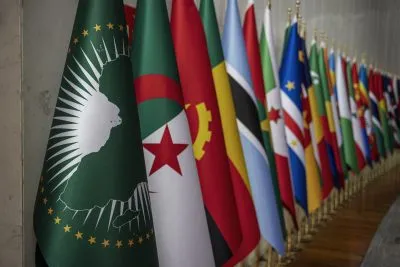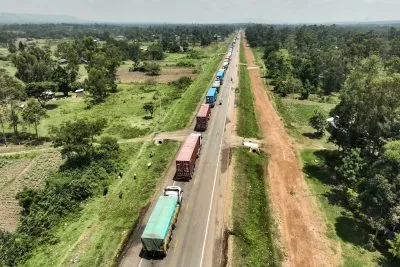One of the most attractive uses for fintech is in enabling overseas remittances.
A total of 19 African countries rely on remittances for 3% or more of their GDP; six for 10% or more; and Liberia for any incredible 31.2% of its GDP. At the same time, the cost of transferring money via established money transfer operators is very high. Sending money to Southern Africa, for instance, costs an average of 14.6% of the value of the money sent – the highest rate in the world.
An estimated 800m people around the world are now directly reliant on remittances. According to research by the International Fund for Agricultural Development, global remittances to developing countries increased by 51% between 2007 and 2016 to reach almost half a trillion dollars a year – although the number of migrant workers from the countries in question rose by only 28% over the period in question.
The World Bank calculates annual official remittances in Africa at $40bn, although it concedes that informal transfers could be worth even more. Most of this is sent from overseas to Africa but a growing proportion is moved between African states.
Just three money transfer operators – Western Union, MoneyGram, and RIA – account for 35% of the global market. Competition is stymied by the fact that many agents are only allowed to work for one operator because of exclusivity agreements.
Campaigns to cut high fees have been launched and in 2014 Kofi Annan described remittance fees to Africa as “unethically expensive”. A goal of reducing fees to a maximum of 3% of the money transferred by 2030 was agreed between European and African leaders but it seems likely that technology and the greater competition that it offers will provide a solution well before that date.
Fintech enables customers to access money from local agents, such as small shops and post offices. There are now over 4.3m registered mobile money agents on the continent. The scale of such networks makes them well designed for micro-lending and micro-insurance. By comparison, the biggest traditional money transfer provider, Western Union, has 500,000 locations in the entire world.
Many, if not most, money mobile agents were already airtime agents, so the mobile banking industry has been able to capitalise on established distribution networks. With the exception of utilising post offices, physical banks have no such advantage.
Post office networks do stretch into rural areas but not in the same numbers as agents. With lower costs and based where people actually live, agents usually have longer operating hours.
Not all plain sailing
M-Pesa is still considered a flagship product in the sector and most adult Kenyans now have an M-Pesa account that allows people to send money to each other via text message. The success of M-Pesa has helped to drive Safaricom’s share of the Kenyan mobile market above 70%.
However, the service is no longer considered infallible after the failure of its S African operations. The service’s owner, Safaricom, had predicted that it would secure 10m users in S Africa within three years but achieved only 1m, in comparison with 22m in Kenya.
The S African market proved to be less conducive to the service, partly because mobile money regulations are significantly different. Ironically, S Africa’s more developed financial services regulation may be stymying the expansion of mobile money, as only banks are allowed to offer banking services. In all of the markets where mobile money use has exploded, companies other than banks are permitted to provide mobile money services.
In addition, Safaricom lacked the market dominance in S Africa that it enjoyed in Kenya to market M-Pesa to potential customers. At the same time, in S Africa traditional banks had been far more successful than their Kenyan counterparts at providing financial services to the bulk of the population. Finally, S Africa has far greater penetration of ATMs, so customers in most areas already have easy access to money.
The Deputy CEO of Mobile Financial Services Africa, Rachel Balsham, commented: “Crippling regulation has had an impact on the money transfer industry globally. Against this background, mobile money is an ideal alternative in emerging markets because of mobile ubiquity and accessibility – what’s more, KYC [identifying and verifying the identity of clients] is managed by the mobile networks, so there is a traceable digital transaction trail, and compliance costs are lower.”
South Africa’s Zoona announced in March that it had handled more than $1bn in transactions in Zambia and Malawi since it was founded, suggesting that Southern Africa is joining East Africa in its enthusiasm for the technology, but mobile money is taking longer to penetrate West Africa.
Dare Okoudjou, the CEO of MFS Africa, said: “Mobile wallet use is finally getting to scale across Africa. This presents an enormous opportunity to improve the remittance experience for Africans across the continent and for the diaspora abroad.”
More wide ranging international deals are now being struck. In July, British money transfer firm WorldRemit and Chinese mobile operator Huawei announced a deal to enable Africans working overseas to send cash to their families in Africa using Huawei’s mobile money service.
To take one example, they agreed that sending £500 from the UK to Tanzania would cost £12.99. Huawei says that its mobile money technology works on ordinary phones as well as smartphones.
Alix Murphy, Senior Mobile Analyst at WorldRemit says “For diaspora members sending money to friends and family back home in Rwanda, Uganda and Zambia, [MTN Group’s] Mobile Money is a real game changer. In Uganda, Mobile Money has already overtaken cash pick-up and bank deposits as the preferred method to receive money.”
MFS Africa has developed a platform to connect a wide range of companies, including MTN Mobile Money, M-Pesa, Orange Money and Airtel Money. It seeks to act as a hub for the mobile wallet services offered by mobile network operators, enabling cross-border, mobile-to-mobile remittances. All users have to do is select the creditor’s phone number, the currency involved and the amount to be transferred. Money is credited and debited in real time.
Promoting interoperability
One of the biggest shortcomings of the technology is the lack of interoperability between the various services and mobile operators in different countries. Until recently, while Kenyans living abroad were able to transfer money to family and friends at home via M-Pesa, it was more difficult for Kenyans to send money to people living in other African countries.
However, cooperation and interoperability agreements are being concluded between different mobile and platform operators. Vodafone, which partly owns M-Pesa, and MTN Group signed a deal in early 2015 that allowed their customers to transfer money between the two networks.
Just weeks later, the British company concluded another agreement that allowed M-Pesa users to transfer money to seven African countries via Vodafone’s network. Other mobile operators were forced to follow Vodafone’s lead. East Africa has been at the forefront of this trend as central banks and telecoms regulators in the region have required operators to allow transfers between platforms.
Want to continue reading? Subscribe today.
You've read all your free articles for this month! Subscribe now to enjoy full access to our content.
Digital Monthly
£8.00 / month
Receive full unlimited access to our articles, opinions, podcasts and more.
Digital Yearly
£70.00 / year
Our best value offer - save £26 and gain access to all of our digital content for an entire year!
 Sign in with Google
Sign in with Google 


